Solar Installers Burlington
Best Solar Installer in Burlington
Get 3 FREE Residential Solar Installers quotes for your project today! Compare profiles, reviews, accreditations, portfolio, etc... and choose the best deal.
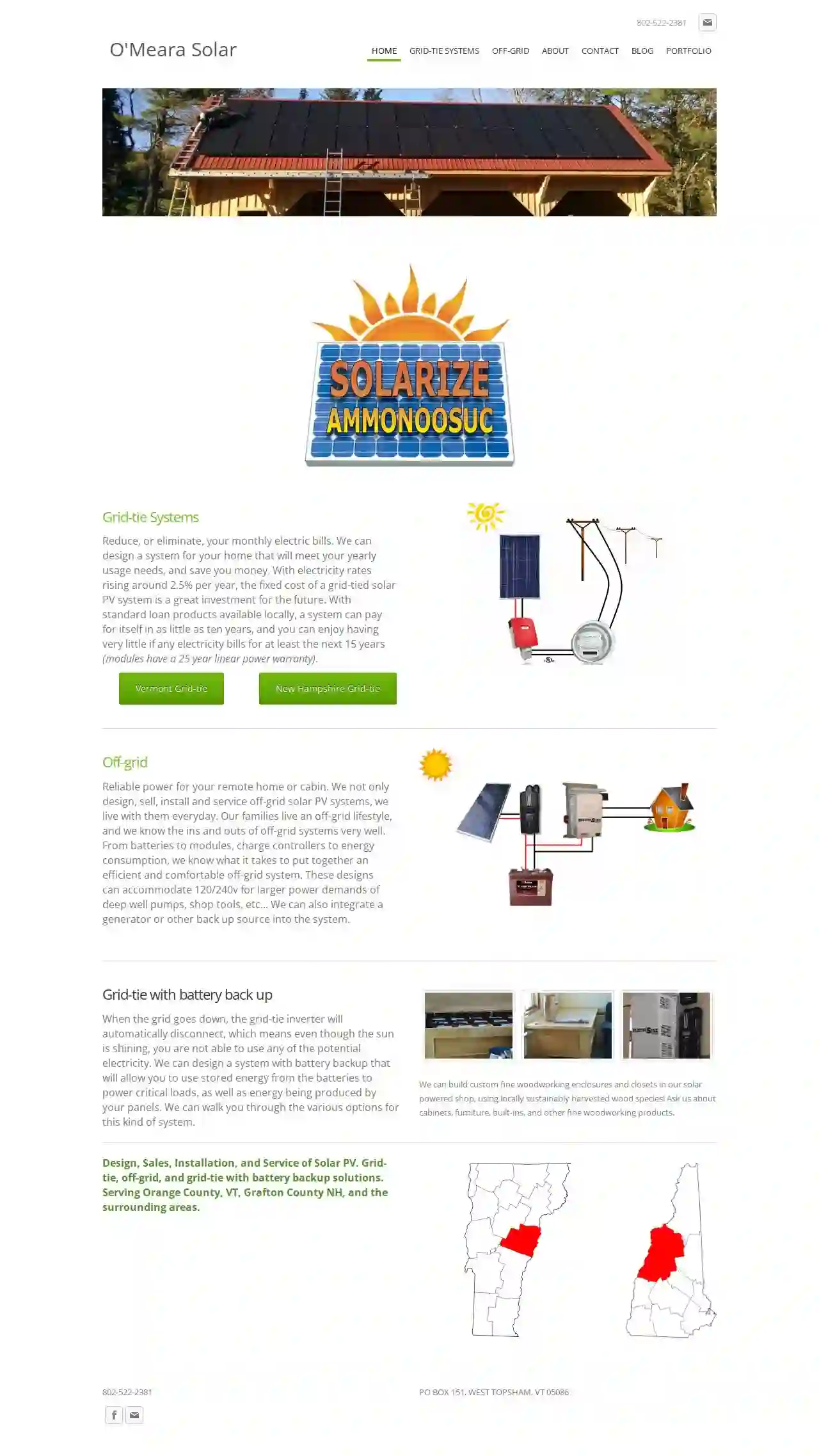
O'Meara Solar
51 reviewsWest Topsham, VT, PO BOX 151, 05086, USO'Meara Solar is a father-son business partnership that grew out of installing, maintaining and living with solar energy in our own homes, and woodworking shop, for the better part of a decade. After being asked to help design, and install, other off-grid systems, we decided to pursue a business in solar design, sales, installation and service in the central Vermont and Upper Connecticut River Valley area of Vermont and New Hampshire. We are a dealer for a couple of large solar distributors, and have access to nearly all major solar equipment manufacturers. Modules, racking, inverters, batteries, and all other system components at reasonable prices. Our business is commercially insured, and we have access to quality sub-contractors, like master electricians, concrete professionals, etc. We can design a system for your home that will meet your yearly usage needs, and save you money. With electricity rates rising around 2.5% per year, the fixed cost of a grid-tied solar PV system is a great investment for the future. With standard loan products available locally, a system can pay for itself in as little as ten years, and you can enjoy having very little if any electricity bills for at least the next 15 years (modules have a 25 year linear power warranty).
- Services
- Why Us?
- Accreditations
- Our Team
- Gallery
Get Quote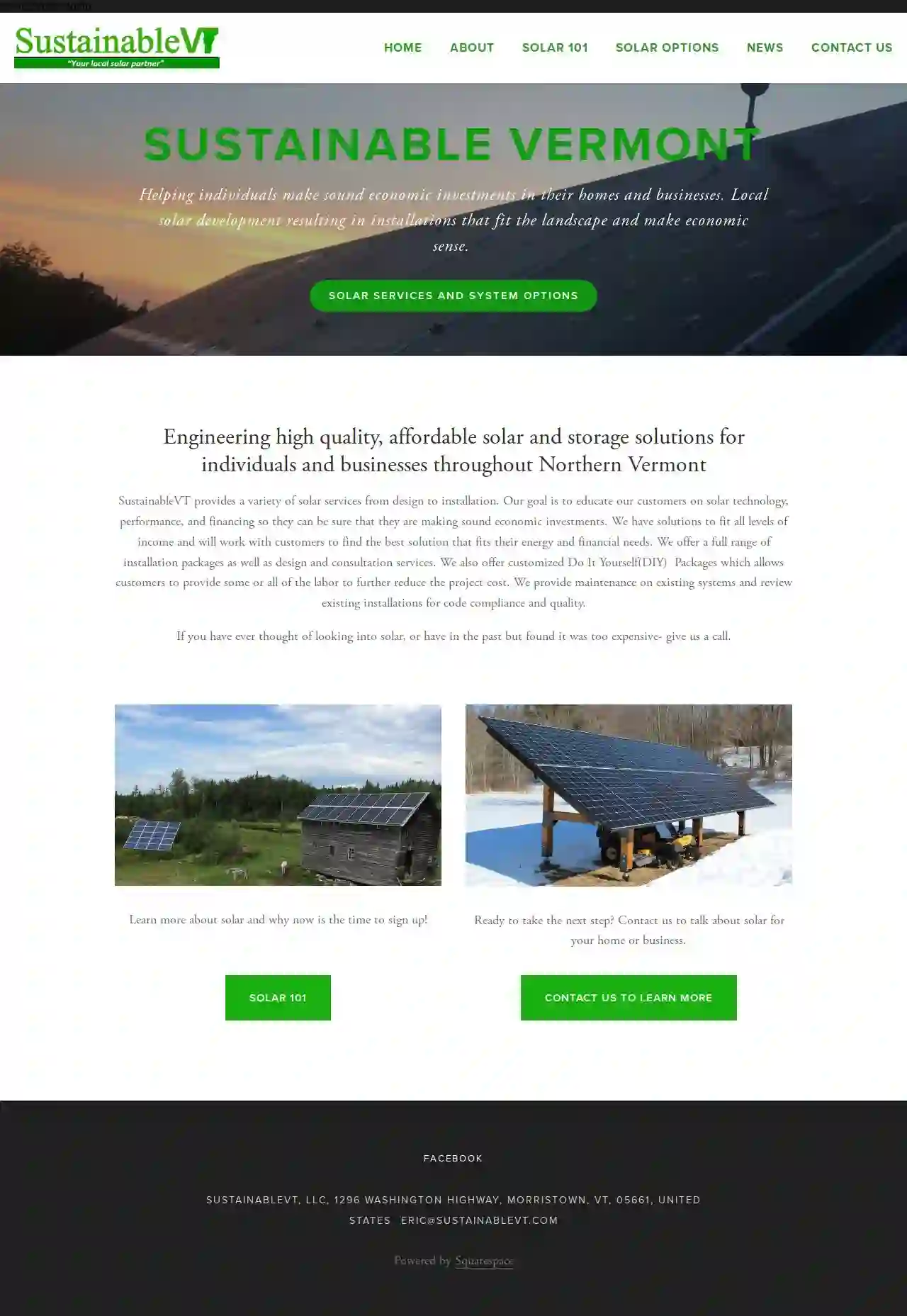
SustainableVT
Hyde Park, VT, United States, 320 Bornemann Rd, 05661, USSustainableVT is a local business that specializes in solar energy solutions for individuals and businesses in northern Vermont. The company is owned and operated by Eric and Alec Bornemann, who have over 20 combined years of engineering experience in the solar industry. Their mission is to foster a sustainable future for Vermont homeowners, businesses, and communities through energy independence and economic vitality. SustainableVT offers a variety of solar services from design to installation, including residential and commercial solar, do-it-yourself packages, off-grid systems, consulting, and engineering. They also provide maintenance on existing systems and review existing installations for code compliance and quality.
- Services
- Why Us?
- Accreditations
- Our Team
- Gallery
Get Quote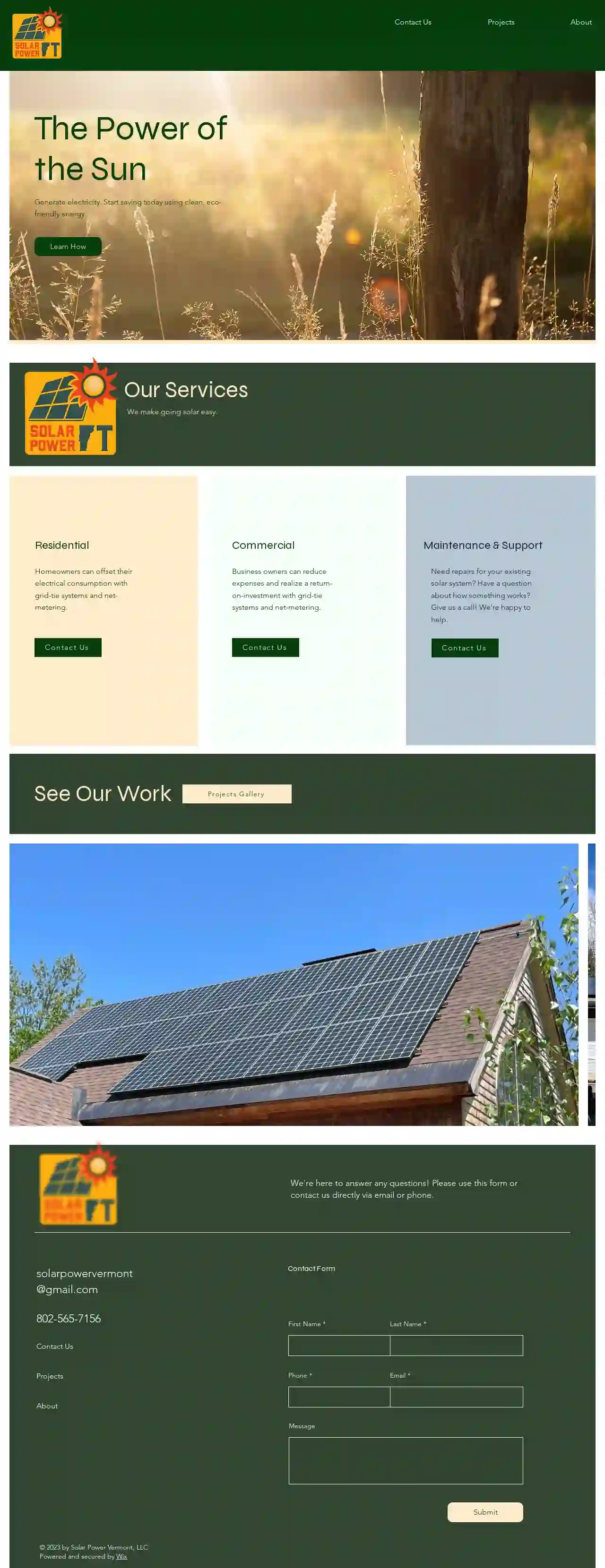
Solar Power Vermont
Newark, Town of, VT, United States of America, 596 School House Rd, 05871, USAt Solar Power VT, we specialize in providing comprehensive solar energy solutions for residential and commercial clients, with a primary focus on residential projects. Our services encompass every aspect of solar power, from sales and design to installation and maintenance of solar panels and battery backup systems. Our expert team is dedicated to helping you harness the power of the sun to reduce your energy costs and carbon footprint. Whether you're looking to install a new solar system or maintain an existing one, Solar Power VT is your trusted partner for reliable, sustainable energy solutions.
- Services
- Why Us?
- Accreditations
- Our Team
- Testimonials
- Gallery
Get Quote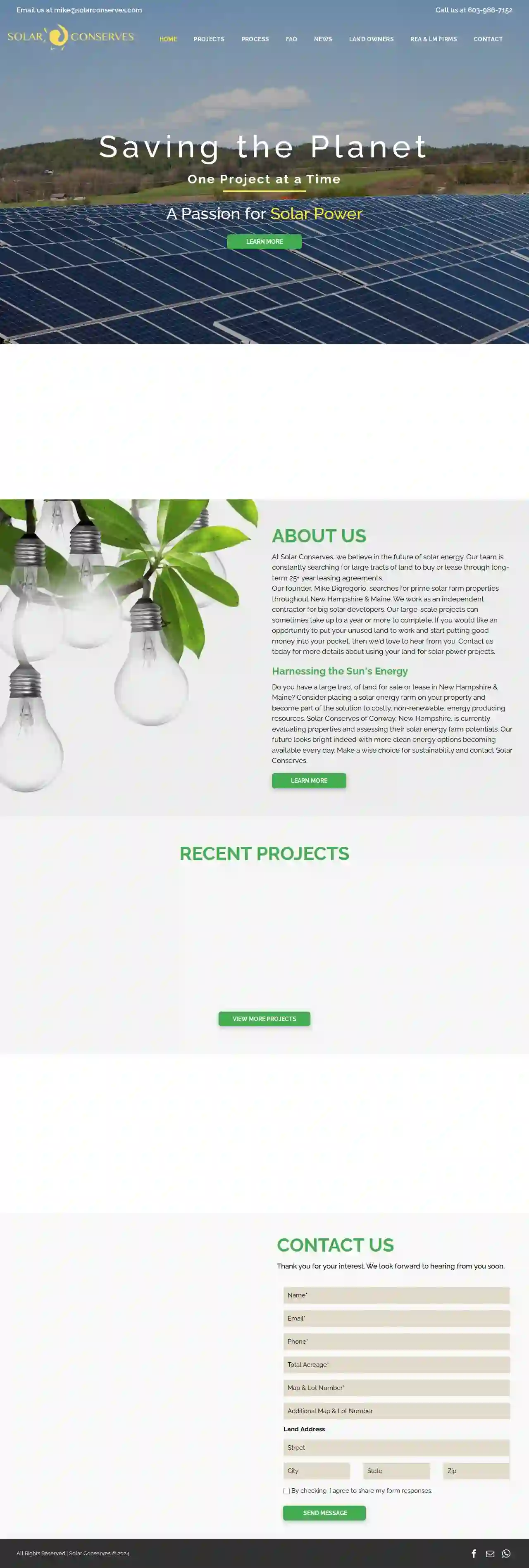
Solar Conserves
123 Main St, Conway, NH, 03818, USSolar Conserves is an independent company dedicated to putting landowners together with large community solar developers. Our team is constantly searching for large tracts of land to buy or lease through long-term 25+ year leasing agreements. Our founder, Mike Digregorio, searches for prime solar farm properties throughout New Hampshire & Maine. We work as an independent contractor for big solar developers. Our large-scale projects can sometimes take up to a year or more to complete. If you would like an opportunity to put your unused land to work and start putting good money into your pocket, then we'd love to hear from you. Contact us today for more details about using your land for solar power projects.
- Services
- Why Us?
- Accreditations
- Our Team
- Testimonials
- Gallery
Get Quote
Synergy Smart Homes - Connecticut Solar & Elite SunPower Dealer
535 reviews20 Tuttle Pl. Suite 7, Middletown, 06457, USSynergy Smart Homes is a leading solar installation company in Middletown, CT, that proudly serves residential and commercial customers throughout Connecticut and Massachusetts. Our local solar energy consultants are dedicated to helping members of our community go green using state of the art technology and products. Whether you’re hoping to convert your entire home to run off of sun power, would like to prepare for a blackout, or need to install an EV charger in Connecticut, we’re here to help. With exceptional solar panels and backup power options that include the Tesla PowerWall and Sunpower Equinox Elite, we’re sure to have a solution that fits your budget. Don’t hesitate to give our team a call to learn more about the benefits and costs of solar installation in Connecticut and throughout New England.
- Services
- Why Us?
- Accreditations
- Our Team
- Testimonials
- Gallery
Get Quote
ISP Solar Energy Company
511 reviews123 Solar Way, Suite 100, West Hartford, 06749, USiSP Solar Energy Company is a leading provider of solar energy solutions in West Hartford, CT. With a commitment to quality and value, they offer cutting-edge solar solutions designed to help homeowners save money and reduce their carbon footprint. Their team of experts is dedicated to delivering professional solar solutions tailored to each customer's needs, ensuring a hassle-free transition to renewable energy.
- Services
- Why Us?
- Accreditations
- Our Team
- Testimonials
- Gallery
Get Quote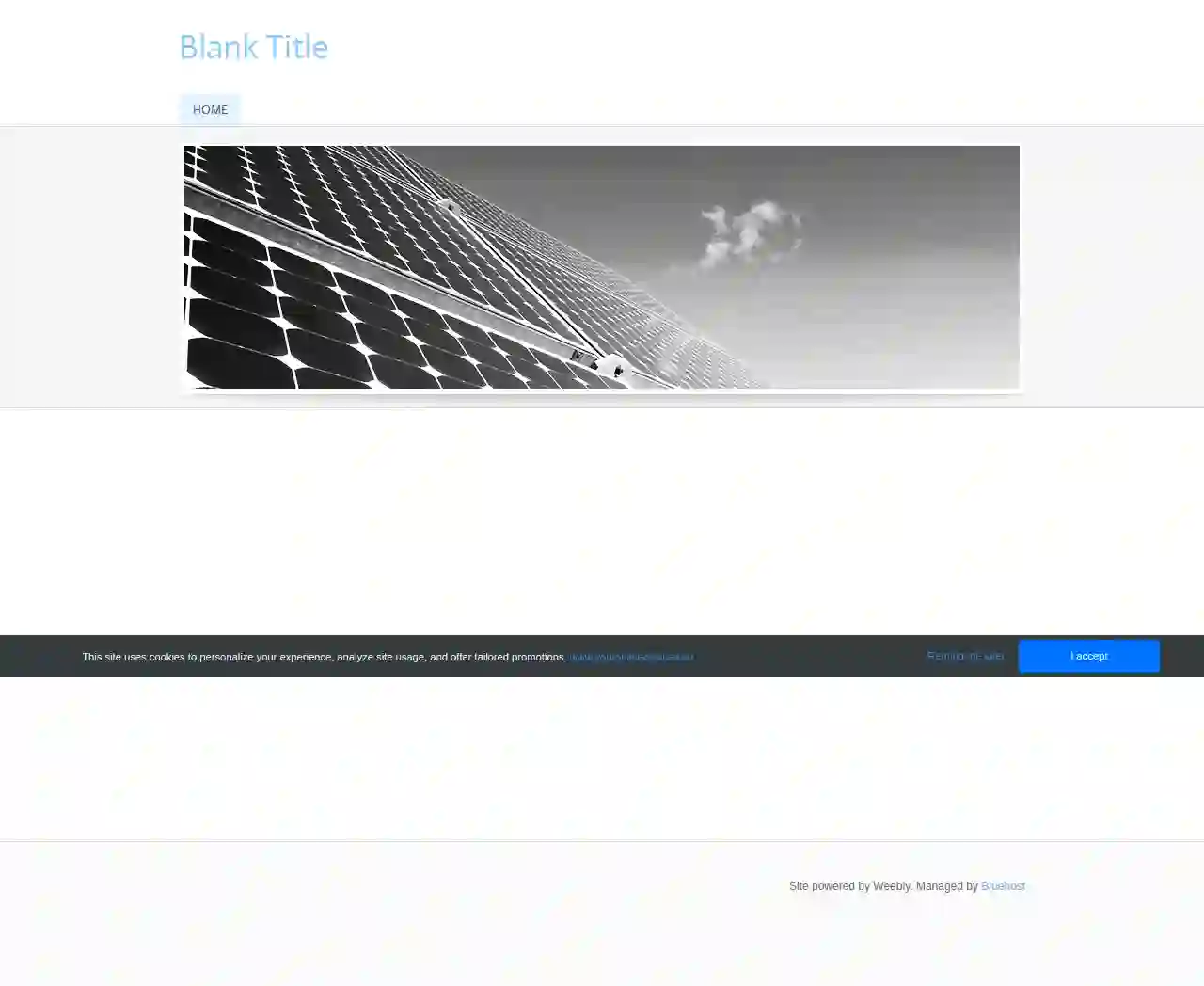
Son Energy Systems
57 reviews123 Solar Street, Suite 100, Solar City, 12345, USSite powered by Weebly. Managed by Bluehost
- Services
- Why Us?
- Accreditations
- Our Team
- Testimonials
Get Quote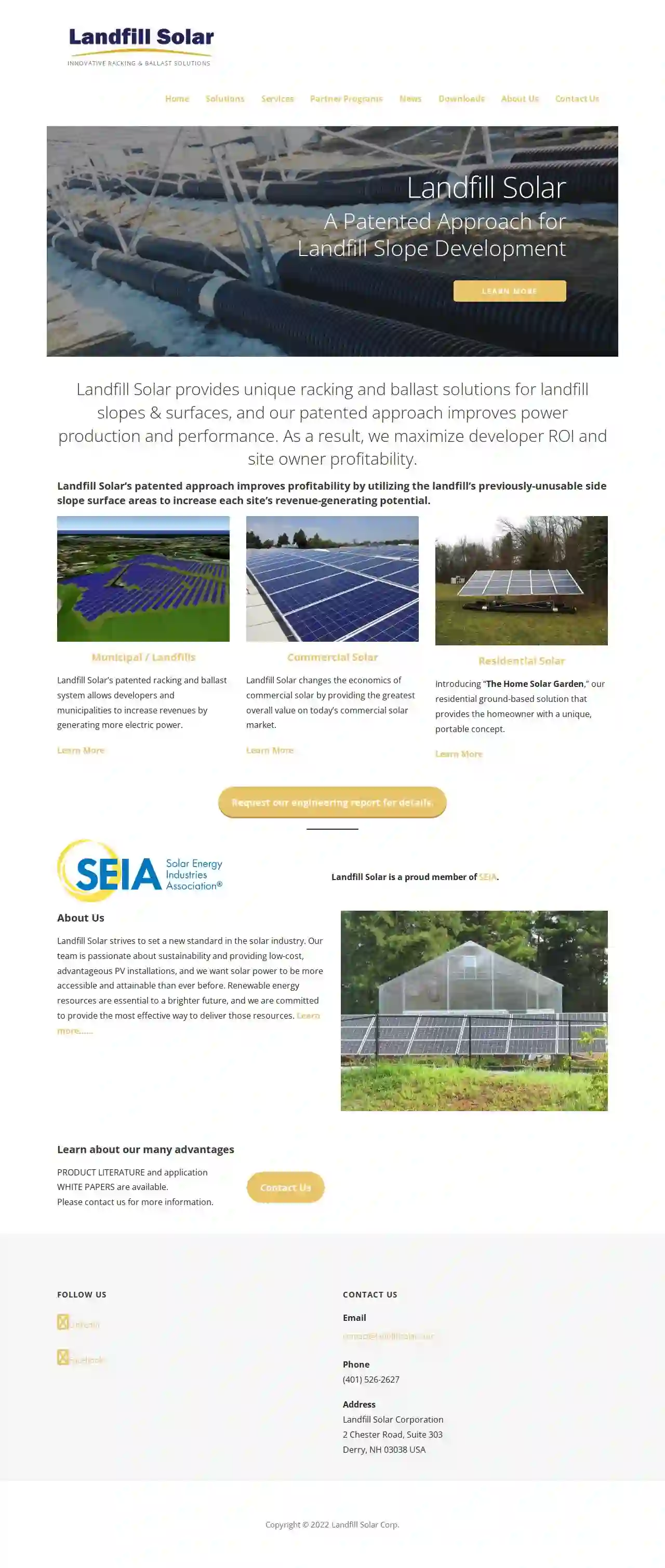
Anar Solar
51 reviewsDerry, NH, USA, 2 Chester Road, Suite 303, 03038, USLandfill Solar is a full-service company dedicated to fulfilling the promise of solar energy for residential, commercial, and municipal installations. We deliver efficient, economical, and eco-friendly solutions that help make solar power more accessible and attainable than ever before. Our team is passionate about sustainability and providing low-cost, advantageous PV installations, and we want solar power to be more accessible and attainable than ever before.
- Services
- Why Us?
- Accreditations
- Our Team
- Testimonials
- Gallery
Get Quote
Solutions Solar
Hartford, USHostinger, UAB solutionsolarpanels.com has expired Because of this, the existing content of your website is not showing. If you are the registrant of this domain name and want to continue the use of your website, please contact Hostinger, UAB with an email to [email protected] to renew the domain name.
- Services
- Why Us?
Get Quote
SoPro
54 reviewsN/A, Hamden, USSustainable & Reliable Energy for Your Home With Solar Panels. Join our many satisfied customers in making your home sustainable!
- Services
- Why Us?
- Accreditations
- Our Team
- Testimonials
- Gallery
Get Quote
Over 4,210+ Solar Contractors in our network
Our solar companies operate in Burlington and beyond!
SolarCompaniesHub has curated and vetted the Best Solar Installers near Burlington. Find the most trustworthy contractor today.
Frequently Asked Questions About Solar Installers
- System size (measured in kilowatts, or kW)
- Type of solar panels (monocrystalline, polycrystalline, thin-film)
- Roof complexity (pitch, size, obstructions)
- Labor costs in your area
- Available incentives and rebates
- Your current energy usage
- The size of your solar system
- Your local electricity rates
- The amount of sunlight your panels receive
- Available net metering policies
What is the average cost of solar panel installation in USA?
What is the lifespan of solar panels?
What is net metering, and how does it work?
How much can I save on my electricity bill with solar panels?
What is the average cost of solar panel installation in USA?
- System size (measured in kilowatts, or kW)
- Type of solar panels (monocrystalline, polycrystalline, thin-film)
- Roof complexity (pitch, size, obstructions)
- Labor costs in your area
- Available incentives and rebates
What is the lifespan of solar panels?
What is net metering, and how does it work?
How much can I save on my electricity bill with solar panels?
- Your current energy usage
- The size of your solar system
- Your local electricity rates
- The amount of sunlight your panels receive
- Available net metering policies